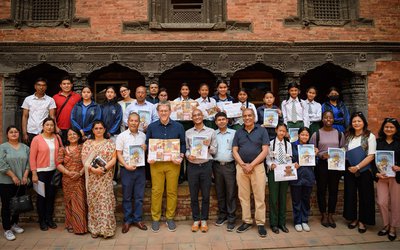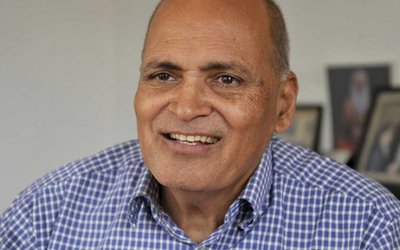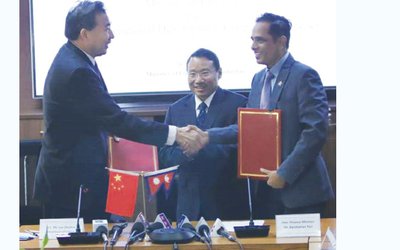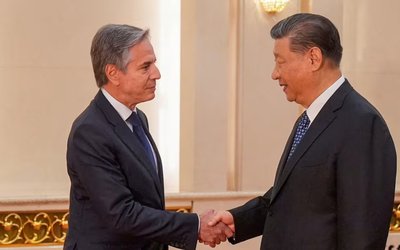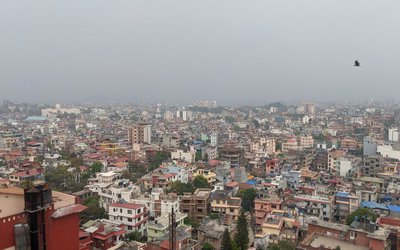Despite KP Oli’s claim that China had nothing to do with regime change—forging the Left alliance—the Chinese Communist Party is delighted about the reincarnation of the Nepal Communist Party 2.0
Following the majority trust vote secured by the new Left alliance of five parties: CPN (Maoists) with 32 seats, CPN (UML) with 78 seats, Rashtrya Swatantra Party with 21 seats, Janata Samajwadi Party with 14 seats, and CPN (Unified Socialists) with 10 seats, aggregating 157 seats in a 275-member house, The Kathmandu Post, in its editorial on March 14, queried, “Whose trust did PM Prachanda win anyway?”
This is the third consecutive vote for Pushpa Kamal Dahal (Prachanda) since he became PM a third time in December 2022, though the confidence vote has shrunk from 268 to 172 to 157, reflecting a diminishing trust in Prachanda and eroding his credibility.
A reputed Nepali journalist I met in Kathmandu told me before the trust vote that Prachanda had not done the right thing by betraying the trust PM Narendra Modi had placed in him.
A slanging match between Maoists and the Nepali Congress on who betrayed whom revealed deep fissures that led to the collapse of the Left-Right alliance. A separate column is required to analyse the policy positions of each side in the blame game.
The new Left alliance, a diluted Nepal Communist Party 2.0 of 2018 vintage, according to former UML PM KP Oli, is not the handiwork of China. “It is us who changed the government,” he informed a group of UML parliamentarians. Despite Oli’s claim, the Chinese are mighty pleased about the change in government given the spate of visiting delegations from Beijing and their Belt and Road Initiative entrapment.
According to former Finance Minister Prakash Mahat of NC, it was Prachanda who had deadlocked BRI, which was supposed to be signed last September during Prachanda’s visit to China. The sticking point was the modality of funding: Nepal wanted aid and grants, not loan repayment, which famously leads to debt entrapment. Mahat told journalists in Kathmandu last week that it was he, as Foreign Minister, who signed BRI in 2017.
The real fireworks were in the trust-vote debate in parliament on March 13. Gloves came off in the exchange of barbs and taunts, with Prachanda obtaining 157 votes, which is a slim margin over the half-way mark of 138. Many lawmakers abstained while more opposed the Left alliance. Oli sarcastically urged former PM Sher Bahadur Deuba, leader of the NC, to vote for the Left alliance, while he also offered to talk to him.
This provoked Prachanda to challenge Deuba and Oli to establish an alliance, even as he admitted he had betrayed Deuba. In an earlier observation, he had noted that switching alliances will go on for as long as he lives.
This confirms there are no permanent friends, only eternal interests dominated by the leader’s personal interests, which Pakistan’s General Musharraf neatly used to call national interests.
Oli had sworn never to befriend Madhav Nepal, the leader of the CPN (United Socialists), but that is precisely what he did to cobble together the Left alliance.
Lawmaker Metmanu Chaudhry from the United Socialists revealed there was a power-sharing agreement of 15 months each as PM for Prachanda, Nepal, and Oli.
At this point, Oli intervened and confessed he was not interested in being PM, and there was no power-sharing agreement. He admitted there was deep mistrust and a crisis of confidence within the ruling coalition. He repeated his offer of talks with Deuba, while Prachanda accepted to sit in the opposition. What is to make of an alliance in which partners are openly critical of the PM and alliance partners?
Clearly, it will not be smooth sailing for the Left alliance, judging from the polarised debate in parliament. Already, NC blocked passage of the Political Parties Act in the House for appointing Ravi Lamicchane as the Home Minister, who is being investigated for misappropriating cooperative funds, and demanded his resignation.
The ruling alliance has secured a majority of 38 out of 59 seats in the upper house, and Prachanda’s elder brother Narayan Dahal was appointed Chairman of the National Assembly (upper house), a sticking point with the NC, which wanted its senior leader KP Sitaula placed there. NC will be a big loser after regime change, shedding several chief ministers and ministers in seven provinces and ten central ministers. “It is nothing short of political hara-kiri,” said a Nepali journalist.
A very troubling issue has emerged from the fallout of Nepal not permitting its youth to join the Agniveer scheme, but for valid reasons. It has driven many young people to join the Russian and Ukrainian armies, fighting each other. A salary of NPR 3.50 lakh on a tourist visa and 15 days of rifle training are good for Russians using them as cannon fodder. This racket has been operational for more than a year, and as many as 300 lads are believed to be unaccounted for, and nearly 700 families are making inquiries about their wards. As many as 20 young ones are confirmed dead.
Every day, 2,000 Nepalese leave Nepal for greener pastures, many ending up horribly. Nepal will soon discover that its coffers, in which India annually puts in about Rs 6,000 crore, which is about 1.7 per cent of its GDP, will begin diminishing due to the non-payment of salaries for 40,000 soldiers and 1.25 lakh pensioners.
Despite Oli’s claim that China had nothing to do with regime change – forging the Left alliance – the Chinese Communist Party is delighted about the reincarnation of the Nepal Communist Party 2.0. The Chinese foreign ministry was the first to congratulate the new coalition government. Indian Ambassador Naveen Shrivastav met Maoist Deputy PM Narayan Kaji Shreshta and informed him that India will work with any government the people elect.
Prachanda, the Maoist leader who strategised the 10-year-long “People’s War” that removed monarchy and transformed Nepal into a federal, democratic, secular republic, will face headwinds in managing the Left alliance, whose longevity is suspected. For detail First Post
The author is former GOC IPKF South Sri Lanka and founder member Defence Planning Staff, now Integrated Defence Staff, Ministry of Defence. Views expressed in the above piece are personal and solely those of the author. They do not necessarily reflect Spotlight’s views.
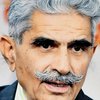
Ashok K Mehta
He is a retired Major General of the Indian Army
- China-assisted Left Alliance Resurges In Nepal
- Mar 18, 2024
- Prachanda Is The Right Choice For India In Nepal
- Feb 26, 2024
- Agnipath Scheme May Impact Ties With Nepal
- Aug 27, 2022
- CDS BIPIN RAWAT: A Proud Gorkha
- Dec 09, 2021






